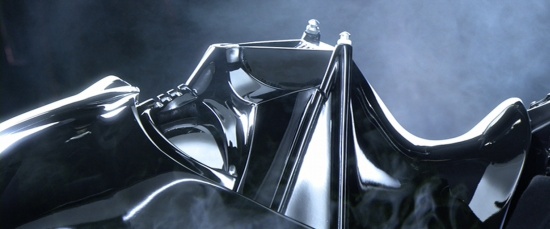One of the effects of the generally positive reaction to Revenge of the Sith is that suddenly critics are looking again at the new Star Wars films and noticing things other than the bad acting and CGI effects. Unable to miss Anakin’s paraphrasing of George W. Bush in the newest film, critics have finally noticed that the Star Wars prequels carry a political subtext. “For decades [George Lucas] has been blamed (unjustly) for helping to lead American movies away from their early-70’s engagement with political matters,” wrote A.O.Scott in The New York Times, “and he deserves credit for trying to bring them back.” While fans of the films might appreciate that there is finally some recognition of what Lucas is up to, it’s hard to award any points for journalistic timeliness when these themes have been evident since The Phantom Menace in 1999.
Monthly Archives: May 2005
Nobody Knows (Hirokazu Kore-eda), 2004
Original Japanese Title: Dare mo shiranai
Nobody Knows is the most frustrating kind of filmgoing experience: halfway to being a wonderful film, it is unfortunately let down by a few critical flaws.
Based on real events, it follows the lives of four Japanese children who, as the film starts, are being smuggled into their new apartment by their flighty, irresponsible mother. The landlord thinks only one child is in the house, and the children have been raised to evade detection. The eldest son, twelve-year-old Akira (played by Yuya Yagira), is the most responsible in the household, cooking meals and caring for his siblings during his mother’s increasingly long absences. But one day she simply fails to come home, and the children must fend for themselves.
Revenge of the Sith (George Lucas, 2005)

You could hate Revenge of the Sith, if you wanted to.
The night before seeing it, I re-watched much of the original Star Wars, and was captured once again – as always – by its magic. There is a strange alchemy at work in Star Wars and The Empire Strikes Back (and sporadically in Return of the Jedi) that the prequels haven’t recaptured. For all sorts of reasons, the prequels are not the return to that universe we all hoped for when the prequels were originally announced: they look different and feel different. If you measure the prequels against the originals, and dwell on what’s missing, you can’t help but mourn for what the prequels could have been. Revenge of the Sith is still not the journey back to that feeling of glorious fantasy that Star Wars and Empire Strikes Back achieved. As such, it isn’t everything that either Star Wars fans or casual moviegoers might have hoped, and there will be those who hate it for that.
Trust Michael Barrier to step in and complicate the Joe Grant story by bringing up the question of whether what is being written about him in the current round of obituaries is actually true. Barrier was prompted by the following over-the-top passage in the obituary by LaughingPlace:
Joe Grant will forever haunt animation, move audiences to tears, and swirl about our hearts like bright autumn leaves, reminding us that those who have come before us are not to be discarded and forgotten, but to be used as a source of courage and inspiration. True inspiration. Never has anyone so unassuming, so gracious and so gentle walked the halls of Disney Animation. Never has any one person – outside of Walt himself – inspired so much creative magic at Disney.
Websters would do well to slip his portrait neatly beside the definition of ‘gentleman.’ It would have to be a lively caricature that emphasized the snowy wave of hair and apple blush cheeks that framed those jewel-brilliant eyes. Joe Grant’s face shined with a Father Christmas sort of secret knowledge of exactly what you were wishing in your heart, and for decades he granted those wishes.
I wouldn’t be so presumptuous as to think I could write an obituary of Joe Grant, the veteran Disney artist who died on Friday: try Jim Hill Media or LaughingPlace for that. But I did want to write a little bit about what a symbolic moment this is, particularly coming so soon after the death of legendary animator Frank Thomas (the second-last of Disney’s so-called “Nine Old Men”) last September.